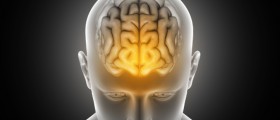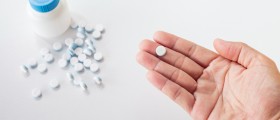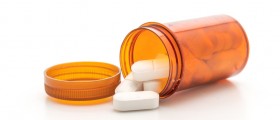
Migraine
The migraine is a form of headache. Current medical theory claims that vasodilatation of blood vessels in the head causes release of chemicals, responsible for the inflammation and pain.
Almost 28 millions of Americans suffer from this disease, and it is more common to women than men. There are two types of migraine headaches: with the aura (pre-existing signs of the migraine attack) and without an aura. Aura signs are different for each person, and may include vision and smell changes.
A migraine is often associated with nausea, vomiting and diarrhea. Patients often seem worse when exposed to any kind of light, sounds, smell or warmth. Migraine is considered to be one of the illnesses that seriously can cripple a patient. The attack might last from couple of hours to couple of days and it usually disables any kind of work or everyday life.
The Migraine Treatment
Milder cases of migraine are often treated with non-steroidal anti-inflammatory drugs (NSAIDs), such as ibuprofen or Aspirin. More serious cases need migraine specific medications, such as ergotamine alkaloids, midrin or triptans.
Triptan medications are: sumatriptan, zolmitriptan, rizatriptan, naratriptan, almotriptan, Frovatriptan, etc. When analgesics NSAIDs and OTC products don’t help, the next thing to try in migraine headache is a triptan medication.
These drugs are known to ease the migraine pain and reduce the risk of another migraine attack in next 24 hours. More than 80% of patients experience relief after the use of triptans.
However, triptans have side effects that shouldn’t be neglected. The most severe adverse side effects are stroke and heart attack. Patients suffering from angina, atherosclerosis, transient ischemic attacks or previous heart attacks and strokes should not use triptans. Triptans should not be used in children and pregnant women.
They shouldn’t be used with antidepressants, such as selective serotonin reuptake inhibitors (SSRI) or selective serotonin/norepinephrine reuptake inhibitors (SNRI). These medications, combined with triptans might provoke a severe problem, known as serotonin syndrome. There is also interference with monoamine oxidase inhibitors (MAOI), propranolol and cimetidine with some triptans.
Ergot alkaloids or ergots are also used to ease migraine attacks, and could be combined with caffeine or other analgesics. Ergots available on the market include ergotamine (Cafergot, Ergomar, Wigraine) and dihydroergotamine products (DHE-45, Migranal). Ergots have a longer lasting effect on the heart than triptans and because of that they are less safe to use. Another side effect of ergot is on the uterus, and these medications might cause miscarriages in pregnant women.
Midrin is a combination medication, consisting of: isometheptene, acetaminophen and dichloralphenazone. This medication achieves best results if taken in early stages of migraine attack. It shouldn’t be used in patients with hypertension, glaucoma, liver or kidney disorders or in those who are treated with MAOI.
Other medications used to treat migraine headaches include: narcotis, butalbital drugs and anti-nausea medications, such as metoclopramide, prochlorperazine or intravenous DHE 45,valproate or prochlorperazine.







_f_280x120.jpg)
-Uses%2C-Side-Effects-And-Risks_f_280x120.jpg)







Your thoughts on this
Loading...